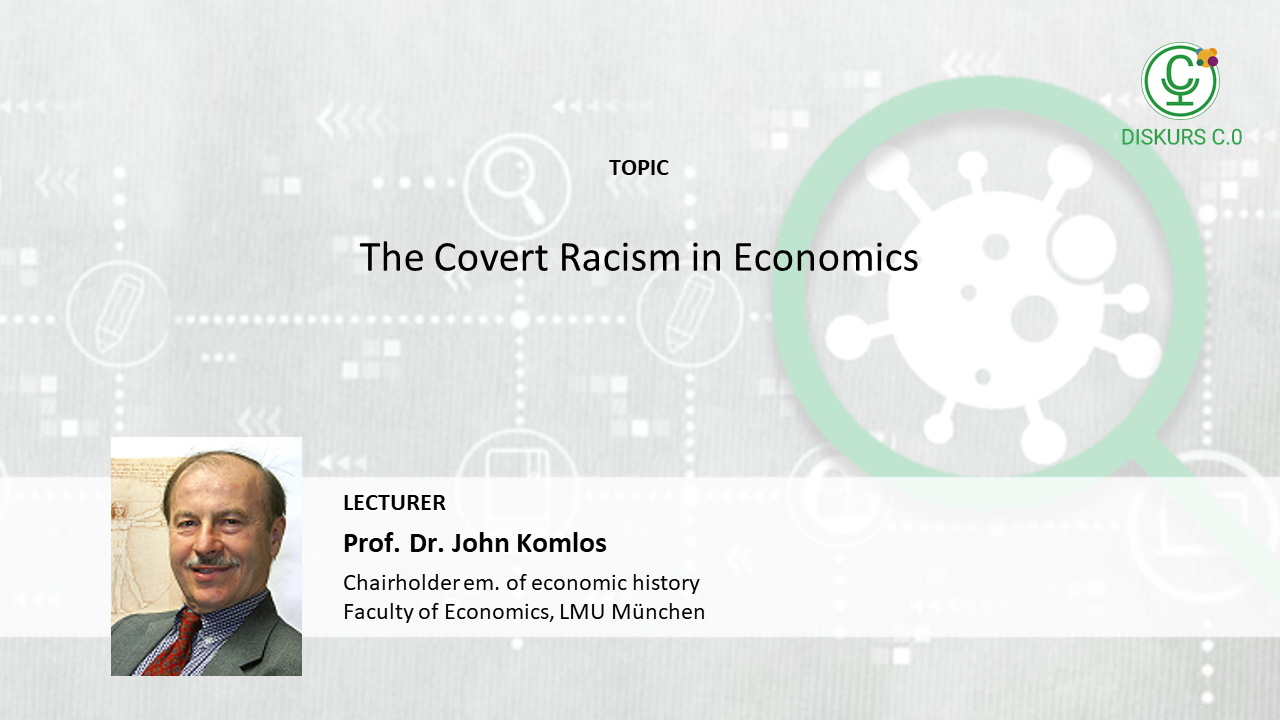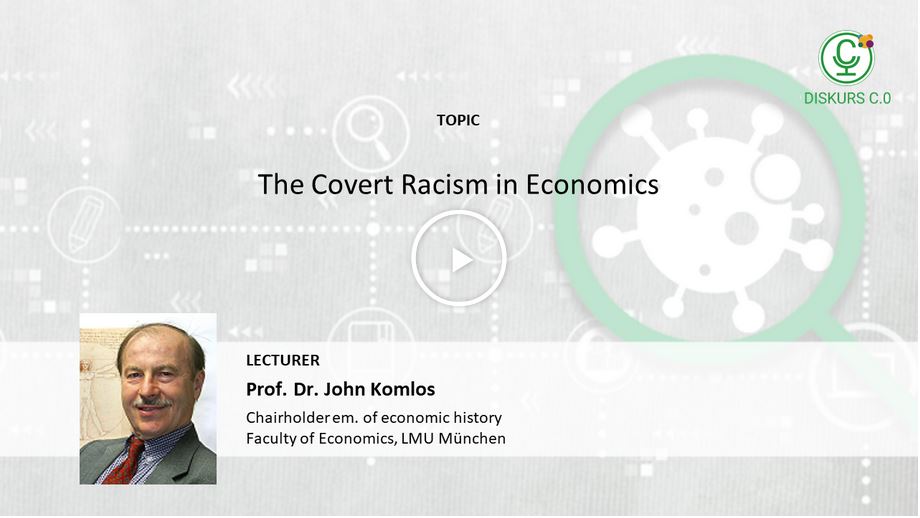The Covert Racism in Economics
Tuesday, 08.12.2020
VWL
The Covert Racism in Economics
Tuesday, 08.12.2020
VWL
Prof. Dr. John Komlos
Prof. Komlos is LMU chairholder em. of economic history and founding editor of "Economics and Human Biology". He was elected a Fellow of the Cliometric Society and is author of multiple books.
Lecture
Prof. Dr. John Komlos, Faculty of Economics
You can watch the lecture by following this link:
Link: https://cast.itunes.uni-muenchen.de/vod/playlists/GY4hqL2o1l.html (restricted to LMU members)
Abstract
The mainstream economic theory is replete with implications that feed into structural racism inasmuch as they have the unintended consequence of severely disadvantaging people at the lower end of the socio-economic spectrum which includes a disproportionate number of Hispanics, Indigenous people, and those whose ancestors were slaves.
Economic theory thereby provide justification for preserving the status quo in the economy and thereby becomes covertly racist insofar as the assumptions upon which it rests handicaps minorities. For example, the canon assumes that information is free, whereas it is not, and costly information implies that its acquisition by poor people requires a greater share of their income, making it more difficult for them to make well-informed decisions. Because of inferior schooling opportunities, the poor are more exposed to the myriad of problems associated with bounded rationality and have difficulties avoiding the traps set for them in small print. That tastes are assumed to be exogenous is hardly a benign oversight, because people enter the market as children; so, unfettered markets have a long time to impact their character.
This has a harsh effect, especially on poor children because they are particularly vulnerable to influence through advertisements. Opportunistic behavior means that people with better information can take advantage of others in an immoral, unprincipled, cunning, crafty, or deceptive manner. Because of less information at their disposal and because of inferior schooling, minorities are more exposed to the vagaries of unscrupulous and powerful megacorporations that often leads to exploitation.
Conventional economic theory, in the main, ignores these crucial issues and instead theorizes about an Alice-in-Wonderland economy inhabited by supermen and superwomen who know everything about everything, are perfectly rational, develop their tastes autonomously, can maximize their welfare, have perfect foresight, and avoid falling prey to opportunists all around them. Hence, mainstream economists provide succor for the maintenance of the status quo which tilts the lever of opportunities away from minorities and supports systemic racism as a consequence.



